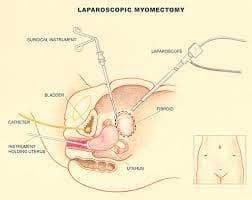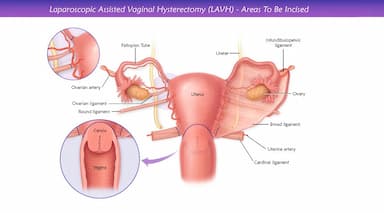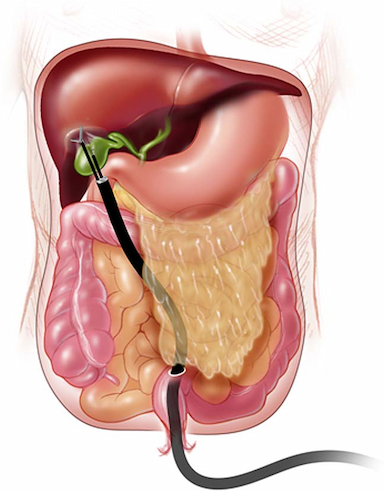
From Symptoms to Prevention, Here’s All You Need to Know About Epilepsy
05 Aug, 2022
 Healthtrip Team
Healthtrip TeamOverview
While epilepsy is common, anyone can develop its symptoms. Over 10 million people in India have epilepsy, making it one of the most common neurological conditions. This happens due to abnormal electrical brain activity known as seizures. It's a kind of electrical storm inside your brain. Because your brain controls so much, many things can go wrong. However, knowing about its symptoms can help in early diagnosis and treatment. In this blog, we’ve discussed various types of epilepsy along with the symptoms for each one of them.
Understanding the condition: epilepsy
Epilepsy is characterized by repeated seizures caused by abnormal electrical signals produced by damaged brain cells. Epilepsy is also known as a seizure disorder.
Transform Your Beauty, Boost Your Confidence
Find the right cosmetic procedure for your needs.

We specialize in a wide range of cosmetic procedures

A seizure is caused by an uncontrolled burst of electrical activity within brain cells. Changes in awareness, muscle control (your muscles may twitch or jerk), sensations, emotions, and behavior can all occur during a seizure.
What are the various types of epilepsy and the symptoms associated with them?
Irrespective of gender, epilepsy can affect people of all age groups, especially children and older adults. The symptoms may vary based on the type of epilepsy you or your loved ones are suffering from.
Broadly, epilepsy can be divided into two types:
- The generalized onset of a seizure
- The focal onset of a seizure
The focal seizure happens in two ways: with loss of awareness and with impaired awareness.
You may experience:
-Altered emotions
Most popular procedures in
Laparoscopic Cystect
Upto 80% off
90% Rated
Satisfactory

Laparoscopic Myomect
Upto 80% off
90% Rated
Satisfactory

LAVH
Upto 80% off
90% Rated
Satisfactory

NOTE
Upto 80% off
90% Rated
Satisfactory

CABG
Upto 80% off
90% Rated
Satisfactory

-Change in sensations like changes in smell, sound, or taste
-Dizziness
-Tingling sensation
-Involuntary movements in certain body parts, like jerking in the hands or legs
With impaired awareness, you may experience
-Passing out or staring into space
-Hand rubbing
-Walking in circles
The generalized onset of seizures can happen in a variety of ways.
- Absence seizure: staring blankly into space, blinking and lip-smacking
- Tonic seizures: stiffening of the back, arm, and neck
- Atonic seizures: loss of muscle control, muscles go slack
- Clonic seizures: affect the neck, face, and arms with repeated jerking
- Myoclonic seizure: sudden brief jerks or twitches in the arms
- Tonic-clonic seizures: involve both tonic and clonic signs like body stiffness and tremor, loss of bladder control, and tongue biting.
Also, read- Neurological Disorders and their Symptoms
What can cause seizures?
A child may suffer from one or more types of seizures. While the precise cause of the seizures is unknown, the following are the most common causes of seizures:
In newborns and babies:
-Birth adversity
-Congenital (present from birth) issues
-Fever/infection
-Body metabolic or chemical imbalances
In children, teenagers, and young adults:
-Head trauma or a brain injury
-Infection
-Congenital disorders
-Factors of genetic origin
-Unknown causes
Other potential causes of seizures include:
-Neurological issues
-Withdrawal from drugs
-Medications
-The use of illegal drugs
What can trigger episodes of seizures?
Epileptic seizures are frequently linked to specific triggers or changes in your daily habits or routine. Here are some examples of common behaviors and factors that may precipitate an epileptic seizure:
-Anxiety, stress, or other emotional issues.
-Abuse of alcohol or drugs, or the process of abstaining from alcohol or drugs
-Sleep schedule changes, feeling extremely tired, or significant sleep deprivation
-A medication change, or skipping or missing a dose of anti-seizure medication
-Overstimulation of the senses, such as brightly flashing lights, watching television, playing video games or working on a computer
-Hormonal changes in women, usually caused by pregnancy or menstruation
-Mental strain, such as that caused by solving complex problems.
How can you prevent those episodes of seizures?
An epileptic seizure can't always be predicted; sometimes they happen for no apparent reason. However, many people can see a link between certain behaviors and seizures. You may be able to avoid seizures if you take steps to reduce these risk factors.
The following are some tips that you can try to reduce the risk of developing seizures.
- Get plenty of sleep every night—create and stick to a regular sleep schedule.
- Learn how to manage your stress and relax.
- Avoid using drugs and drinking alcohol.
- Take all of your medications exactly as directed by your doctor.
- Stay away from bright, flashing lights and other visual stimuli.
- When possible, avoid watching TV and using the computer.
- Maintain a healthy diet.
Until more is known about the causes of epilepsy and how it can be prevented, your best bet is to avoid the things that can trigger your seizures.
How can we help with the treatment?
If you want to undergo treatment for epilepsy or other neurological condition in India, our health trip advisors serve as your guides throughout the medical treatment and will be physically present with you even before the treatment begins. The following will be provided to you:
- Opinions of expert physicians and surgeons
- Transparent communication
- Coordinated care
- Prior appointment with specialists
- Assistance with hospital formalities
- 24*7 availability
- Arrangement for travel
- Assistance for accommodation and healthy recovery
- Assistance in emergencies
We are dedicated to offering the highest quality health care to our patients. We have a team of highly qualified and devoted health trip advisors that will be by your side from the beginning of your journey.
Wellness Treatment
Give yourself the time to relax
Lowest Prices Guaranteed!

Lowest Prices Guaranteed!



